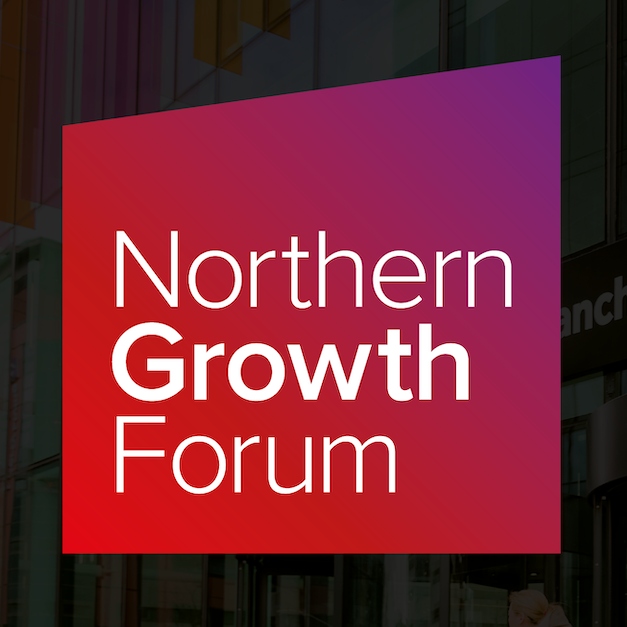Kate McNamee, Director of Marketing and Communications at Alliance Manchester Business School, explores the topic of how best to work your business strategy for your customers.
Kate will be chairing the ‘Communicating to the Market’ roundtable at the Northern Growth Forum in November – a half-day conference for senior business leaders focused on growth in the North.
Register to attend the Northern Growth Forum
The old adage – the only certainty is uncertainty – couldn’t be more pertinent as we navigate this brave new world of economic and political unpredictability.
Against this global backdrop, the UK economy is showing signs of these pressures and businesses of all sizes and across all sectors are feeling the pinch.
Much is written about the negative side of uncertainty. However, uncertainty brings the opportunity to innovate and stand out from the crowd.
Businesses that are thriving are going back to basics – keeping it simple – by putting their customers front and centre of their growth strategy.
Putting customers front and centre
Most brands would say they put customers at the heart of their growth strategy – this is often easier said than done.
It starts with listening to your customers and involving them by understanding their needs, in product development, and in spreading the word about why they value your product or service.
Take drinks brand Innocent as an example – despite a bumpy ride after selling out to Coca Cola – the brand successfully involves its customers in the development of new products and in its campaigns that deliver a clear social purpose.
Innocent’s accessible and witty tone of voice works particularly well over its social channels – see its latest campaign for oat and almond (not conker) milk!
It engages its customers as brand ambassadors, involving them through campaigns that feature their ideas, artwork and recipes – strengthening brand awareness and keeping sales on the up. Today, Innocent is one of the UK and Europe’s largest smoothie and juice brands, with annual sales of more than £350million.
On the flip side – when businesses get it wrong and their customer service lags behind brand promise – growth stalls.
Since the start of 2019, Norwegian Air has hit a near-constant spell of turbulence – with significant gaps between its brand positioning and customer service.
The brand’s reputation took a further nose dive with the surprise resignation of its CEO, the closing of key transatlantic routes, and multiple analyst downgrades.
Values, brand proposition and financial success go hand-in-hand
Having clear brand values and bringing them to life across all areas of your business are essential ingredients for success.
Nisha Katona, founder of fast-growing restaurant brand Mowgli recently spoke at Alliance Manchester Business School (AMBS).
She emphasised the importance of Mowgli’s cultural pillars – grace, intelligence and graft – that infuse all areas and processes of the business: from its staff, to marketing and communications, how it interacts with suppliers, to customer service and, of course, its food.
In 2017, Mowgli secured £3.45million worth of funding to grow the business and now has 10 sites across the UK, with new sites due to open in Bristol and Preston.
Another good example is Lush – the cosmetics brand whose values are clearly embedded in its products. Its commitment to ethical buying, its active role in choosing sustainable ingredients, and its conscious efforts to fight against animal testing are communicated loud and clear.
In line with its transparent approach to communication, the brand controversially decided to close down its social media accounts, opting to communicate with customers via its live chat feature, via email and telephone, insisting that social media is hampering its ability to talk to customers directly due to constantly fighting against keywords and algorithms.
By adhering to its transparent brand values, the consumer is more likely to endorse its products – the retailer recently opened the doors to its biggest store yet.
Understanding the lay of the land
Those of you who remember Kotler’s weighty Principles of Marketing, know that understanding the market and your competitors is key to any successful marketing communications strategy.
Understanding how a business fits into the wider picture will ultimately ensure its success in conveying its proposition to the consumer.
Manchester fast fashion brand Boohoo is one example of a business that understands its place in the market. Despite some negative press around fast fashion and its supply chain, Boohoo’s ‘fashion for all’ approach has fuelled its growth by targeting younger audiences via social media influencers.
Space NK, the luxury make-up brand, is another example of a business that owns a distinct gap in the market. The high-end company has broken into a market already cluttered with discount makeup brands by delivering a best-in-class brand mix for customers. It engages with consumers through in-store events, masterclasses and personalised beauty expert meet-and-greets, in response to consumer feedback for more bespoke services.
Data is only as good as the people using it
Leveraging data to understand market trends is nothing new and there’s no doubt that using analytics to better understand consumer behaviour is vital to business growth.
But in today’s era of transparency, we shouldn’t rely on data alone.
Thriving brands combine human brainpower and creativity to understand how to best apply data in the real world – another element that helps lifts a brand from ordinary to engaging.
Early 2020 will see the opening of AMBS’ Data Visualisation Observatory. This immersive space will allow businesses to examine data and conduct virtual reality focus groups to help them improve performance, such as optimising product placement in a virtual supermarket to improve efficiency in a supply chain.
This service will help growing businesses get the most out of their data and use it to get ahead in competitive markets.
Listening to your customers, having clearly articulated values, understanding the market and competitors; alongside getting to grips with data will only get you so far.
These foundations need to be backed with passion and enthusiasm for your product or proposition and the ability to successfully communicate your value proposition to the market.











